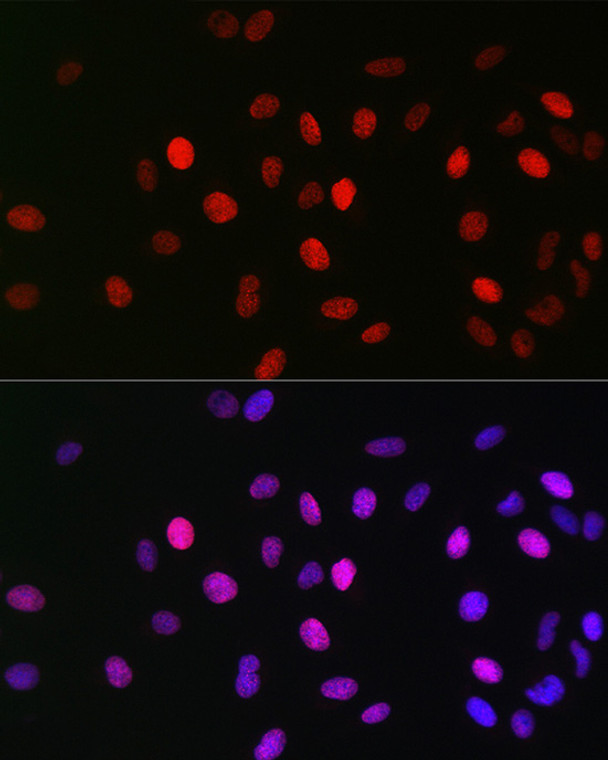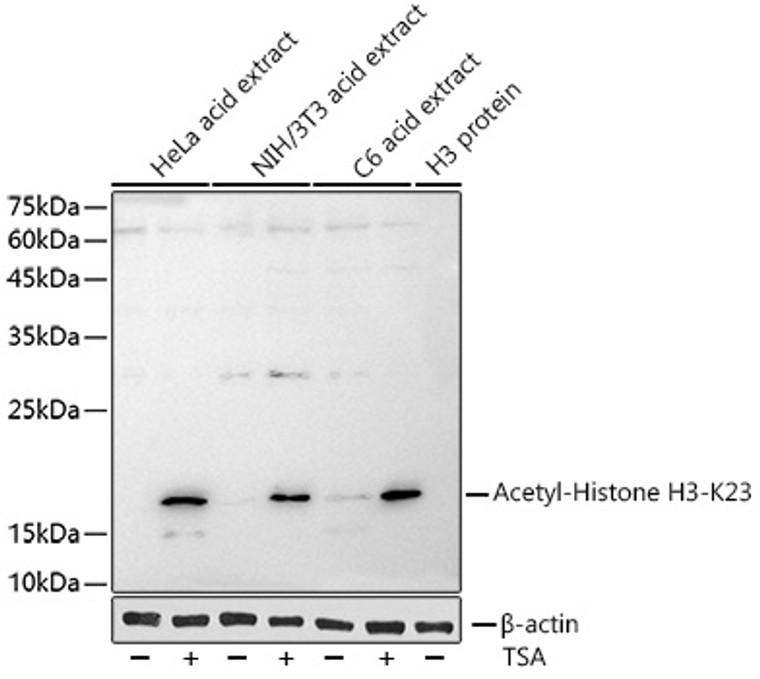| Host: |
Rabbit |
| Applications: |
WB/IF |
| Reactivity: |
Human/Mouse/Rat |
| Note: |
STRICTLY FOR FURTHER SCIENTIFIC RESEARCH USE ONLY (RUO). MUST NOT TO BE USED IN DIAGNOSTIC OR THERAPEUTIC APPLICATIONS. |
| Short Description: |
Rabbit monoclonal antibody anti-Acetyl-Histone H3-K23 is suitable for use in Western Blot and Immunofluorescence research applications. |
| Clonality: |
Monoclonal |
| Clone ID: |
S7MR |
| Conjugation: |
Unconjugated |
| Isotype: |
IgG |
| Formulation: |
PBS with 0.02% Sodium Azide, 0.05% BSA, 50% Glycerol, pH7.3. |
| Purification: |
Affinity purification |
| Dilution Range: |
WB 1:500-1:1000IF/ICC 1:50-1:200 |
| Storage Instruction: |
Store at-20°C for up to 1 year from the date of receipt, and avoid repeat freeze-thaw cycles. |
| Immunogen: |
A synthetic acetylated peptide around K23 of human Histone H3 (P68431). |
| Immunogen Sequence: |
MARTKQTARKSTGGKAPRKQ LATKAARKSAPATGGVKKPH RYRPGTVALREIRRYQKSTE LLIRKLPFQRLVREIAQDFK TDLRFQSSAVMALQEACEAY |
| Background | This gene encodes a calcium-binding protein that is abundant in neutrophils and macrophages. In the absence of divalent cation, this protein localizes to the cytosolic fraction; with magnesium alone, it partitions with the granule fraction; and in the presence of magnesium and calcium, it associates with both the granule and membrane fractions. Alternative splicing and use of alternative promoters results in multiple transcript variants. |
Information sourced from Uniprot.org
12 months for antibodies. 6 months for ELISA Kits. Please see website T&Cs for further guidance








